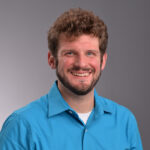Religion, Social Conflict, and Peace
Syllabi - Topic: Religion, Social Conflict, and Peace - 28 results
Select an item by clicking its checkboxA course by Chad Bauman at Butler University on the "relationship of religion, politics, and conflict in modern South Asia."
A course by James Wellman and Scott Noegel at the University of Washington on the "complex relationship between religion, violence, and peace."
A course by John Cort at Denison University explores "some of the ways in which the religious traditions of Hinduism, Jainism, Buddhism, and Christianity have advocated the use of nonviolent means to effect personal transformation, to resolve social conflict, and to advance causes of social change."
A 2012 course by Mindy McGarrah Sharp at Phillips Theological Seminary seeks to "establish and build on a basic framework of Christian ethics in order to study models of Christian moral reasoning and responding in the face of violence over a variety of contexts."
A 2011 course by Shalahudin Kafrawi at Hobart and William Smith Colleges "discusses Qurâanic views regarding the meaning of Islam and Qurâanic treatment of various forms of peace including liberation, justice, equality, submission, freedom, and tolerance, as well as those of violence including war, self-defense, killing, suicide, sacrifice, and punishment" with attention to historical origins of teachings and contemporary issues.
A 1998 course by Ken Butigan and Louis Vitale at the Franciscan School of Theology and Graduate Theological Union, Berkeley "investigate(s) the spirituality, dynamics and strategies of Christian nonviolence." The readings "draw on the teachings and practices of the Christian peace and justice tradition; Christian feminism; and Gandhian nonviolence."
A 2013 course by Cecelia Clegg and Theodora Hawksley at the University of Edinburgh on "the relations between religion, violence and building peace" using case studies.
A 2015 course by Gerald Schlabach at the University of St. Thomas provides an "examination of the views of various religions and ideologies on issues of justice and peace, with special attention to the Catholic and of the Christian teachings on such issues as war and peace, violence, economic justice, the environment, criminal justice, and social justice."
A 2013 course by Jeremy Bergen at the University of Waterloo surveys "the theological accounts of war and peace that Christians have given from the early church to the present."
A 2003 course by Chris Hamilton at Washburn University "describes the major world religions in America, and their political/social teachings and practices that affect American life and the world."
A 2007 course by Ira Chernus at the University of Colorado at Boulder "studies selected eras of war and selected movements for peace throughout U.S. history . . . the Pequot war, the war with Mexico, the Spanish-American war, World War II, the Cold War, the U.S. wars against Iraq, and the "war on terrorism" are featured.
A 1999 course by Timothy Lubin at Washington and Lee University investigates the "place of religious ideas and practices in defining social identity and shaping actual communities, and roles of religion in politics" through the lens of South Asia, "drawing examples from India, Sri Lank, Pakistan, and Nepal."
A 2016 course by Geoffrey Claussen at Elon University offers a historical perspective on "ancient and medieval texts about war in their original contexts, and then giving particular attention to modern Jewish thinking in various contexts."
A 1998 course by Joe Groves at Guilford College examines "several significantly different approaches to nonviolence" as an experience, a way of life.
A 1997 course by Manfred Steger at Illinois State University employs "political, ethical, and sociocultural" perspectives to encourage "a personal examination of the connections between political power, violence, and ethically motivated forms of nonviolent resistance."
A 2010 course by Ira Chernus at the University of Colorado at Boulder traces "the history of nonviolence movements in the U.S. from colonial times to the present, with special attention to the influence of Christian theology and the teachings of Gandhi." Reinhold Niebuhr's critique of nonviolence will also be considered.
A 2011 course by Ellen Posman at Baldwin Wallace College.
A 2013 course taught by Charles Bellinger at Brite Divinity School "explores the highly ambiguous relationship between religious faith and violence" through ethical, social, psychological, political, and theological perspectives.
A 2002 course by Michael Sells at Haverford College uses case studies to analyze phenomena of violence with religious roots.
A 2016 course taught by John N. Sheveland at Gonzaga University investigates "recent examples of religious group violence and consult a variety of religious responses. We study sacred texts, theological and ethical traditions, but also films, through 2015."
A course by Rick Rogers at Eastern Michigan University "explores the disturbing alliance between religion and violence in a variety of religious traditions and cultural contexts."
A 2006 course by Jim Watts at Syracuse University traces "the idea of sacrifice along two vectors: the cultural vector . . . From modern to ancient Near Eastern cultures, and the theoretical vector which we will analyze forwards from 19th-century to contemporary theorists of sacrifice."
A 1997 course by Glen Stassen at Fuller Theological Seminary "compare(s) and contrast(s) the approaches of several types of Christian ethics to peacemaking and war. The types include pacifism, just war theory, and just peacemaking theory."
A 2009 course by Gerald Schlabach at the University of St. Thomas "examines circumstances in which military force may be justified and the moral constraints that apply to its conduct."
A 2010 course by Mari Fitzduff at Brandeis University.
A 2002 course by K. I. Koppedrayer at Wilfrid Laurier University "is a study of Gandhi, the man, and Gandhi, the myth. It is about colonial India and the life and times of Mahatma Gandhi, his struggles for personal freedom and for a free India. It is also about our memory of Gandhi."
A 2012 course by Martha Reineke at the University of Northern Iowa tools "from the mimetic theory of Rene Girard" to explore religion and violence in the contemporary period.
A 2013 course by Brad Starr at California State University, Fullerton, is an "Interdisciplinary exploration of major theories, developments, and documents connected to the relationship between religious practices and motivations for engaging in, preventing, or rejecting violent behavior."

